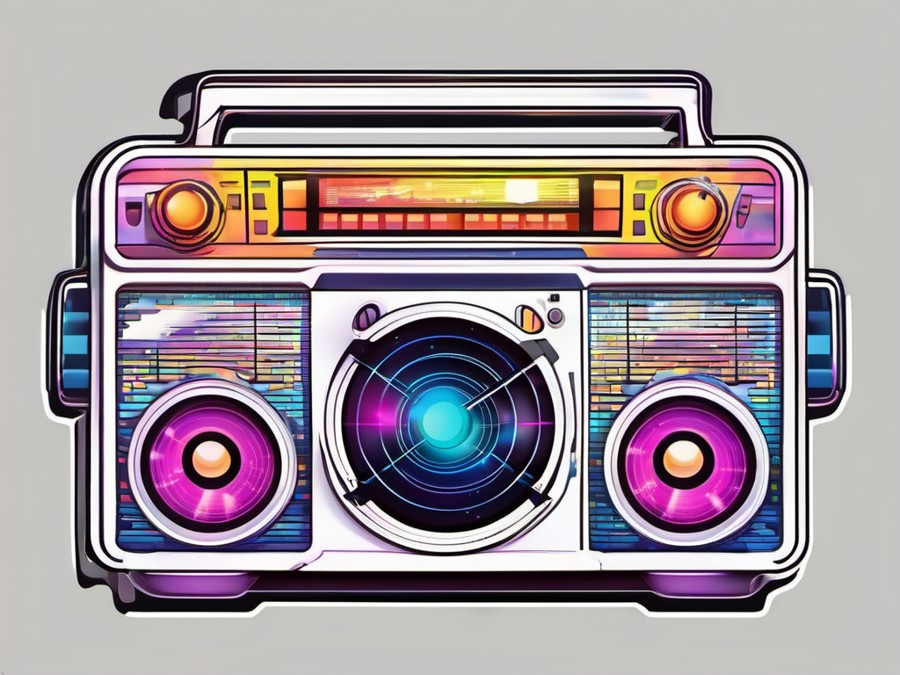· Charlotte Will · Internet Radios · 6 min read
What is a digital radio and how does it differ from an internet radio?
Discover the difference between digital and internet radio, their benefits, and which is better for your needs. Learn about reception, coverage, and future trends in digital broadcasting.

Have you ever wondered how digital radio works or how it compares to internet radio? You’re not alone. Many people are curious about these two popular audio broadcasting technologies. In this article, we’ll delve into the world of digital radio and explore how it differs from internet radio. So, grab a cup of coffee, and let’s dive in!
Understanding Digital Radio: A Beginner’s Guide
What is Digital Radio?
Digital radio, as the name suggests, is a form of broadcasting that uses digital technology to transmit audio signals. Unlike traditional analogue FM or AM radio, digital radio converts audio signals into a binary format before transmitting them. This allows for clearer, more reliable broadcasts with additional features and services.
The Evolution of Digital Radio
Digital radio has come a long way since its inception. The most common standard used today is DAB (Digital Audio Broadcasting), which first emerged in the 1990s. Now, you can enjoy digital radio on a range of devices, from standalone receivers to your car’s built-in system.
Benefits of Digital Radio
So, why should you consider switching to digital radio? Here are some key benefits:
- Improved Sound Quality: Digital radio offers crystal-clear audio with less interference and background noise.
- More Stations and Content: Digital radio stations can broadcast in various formats, offering a wider range of programs and music genres.
- Additional Features and Services: Many digital radios come with advanced features like text display, slide shows, and even interactive services.
Digital Radio vs Internet Radio: The Key Differences
Now that we’ve covered the basics of digital radio, let’s compare it to internet radio. Both offer excellent audio quality and a wide range of content, but they have some fundamental differences.
Transmission Methods
- Digital Radio: Uses terrestrial broadcasting to transmit signals over the air, similar to traditional radio.
- Internet Radio: Streams audio content over the internet, requiring a stable connection for optimal performance.
Reception and Signal Quality
- Digital Radio: Offers reliable reception with minimal buffering and interference. However, signal quality can degrade in areas with poor coverage.
- Internet Radio: Depends on your WiFi or mobile data connection. Buffering can occur during periods of heavy internet usage or in areas with poor signal strength.
Station Variety and Content
- Digital Radio: Provides access to local and national stations, with a focus on content suitable for the broadcasting area.
- Internet Radio: Enables global access to a vast array of stations and niche content. You can listen to radio programs from all over the world!
Buffering and Compression
- Digital Radio: Minimal buffering, with lossless compression ensuring high-quality audio.
- Internet Radio: Prone to buffering issues and uses lossy compression, which can affect audio quality.
Should You Choose Digital or Internet Radio?
The choice between digital and internet radio depends on your specific needs and circumstances. Let’s explore when to opt for each format.
When to Opt for Digital Radio
Digital radio is an excellent choice if you:
- Value reliable, local content.
- Want to avoid buffering and signal loss.
- Enjoy listening while commuting or travelling.
When Internet Radio is the Better Choice
Internet radio shines in situations where:
- You want access to global stations and niche content.
- Your primary listening environment has a stable internet connection.
- You prefer the flexibility of streaming services and on-demand content.
Is Digital Radio Better than Internet Radio?
This question doesn’t have a straightforward answer, as both formats have their advantages. It ultimately depends on your personal preferences and listening habits.
Common Misconceptions about Digital Radio
Let’s address some common myths and misconceptions about digital radio to set the record straight.
Does Digital Radio Need WiFi?
No, digital radio does not require an internet connection. It relies on terrestrial broadcasting to transmit signals, similar to traditional radio.
What Happens When You’re Out of Digital Range?
If you move out of the broadcasting range, you may experience signal loss or degraded audio quality. In areas with poor coverage, some stations might not be available at all.
Debunking Myths about Digital Radio Reception
One common concern is that digital radio reception can be worse than FM/AM. However, modern digital standards like DAB+ offer superior coverage and signal quality compared to older analogue technologies.
The Future of Digital Radio
As technology advances, so does the world of digital radio. Here are some emerging trends and what they mean for the future of broadcasting.
Emerging Trends in Digital Broadcasting
- DAB+: An advanced digital radio standard offering improved audio quality and wider coverage.
- Connected Cars: Many modern vehicles come with built-in digital radios, enhancing the driving experience.
- Smart Speakers: With voice assistants and internet connectivity, smart speakers are becoming popular choices for home listening.
Will Digital Radio Replace Internet Radio?
It’s unlikely that digital radio will entirely replace internet radio. Both formats cater to different audiences and use cases, ensuring their continued coexistence.
Making the Switch: From FM to Digital Radio
Ready to take the plunge and switch to digital radio? Here’s what you need to know before making the change.
What You Need to Know Before Making the Change
- Coverage and Availability: Check if digital radio is available in your area and which stations you can receive.
- Compatibility: Ensure that your existing devices are compatible with digital radio or consider investing in a new receiver.
Enjoying Digital Radio: Tips and Tricks
To get the most out of digital radio, keep these tips in mind:
- Optimize Reception: Place your receiver near a window or elevate it to improve signal strength.
- Explore Features: Experiment with the various features and services offered by your digital radio.
- Stay Updated: Keep an eye on new stations and content as they become available in your area.
Conclusion
Digital radio and internet radio each have their own unique advantages and use cases. Whether you prioritize reliable local content or the flexibility of global streaming, there’s a broadcasting technology suited to your needs.
As you embark on your digital radio journey, remember that the best choice depends on your specific situation and preferences. So, grab your receiver, tune in, and enjoy the world of digital broadcasting!
FAQs
Can I use digital radio without an internet connection?
Yes, digital radio does not require an internet connection. It relies on terrestrial broadcasting to transmit signals, similar to traditional radio.
How many stations can I get with digital radio?
The number of available stations depends on your location and the standard used. With DAB+, you can typically receive more stations than traditional FM/AM radio.
Will digital radio work in my car?
Yes, many cars come with built-in digital radios or offer aftermarket options. Check your vehicle’s specifications to see if it supports digital broadcasting.
Can I record programs on a digital radio?
Yes, many digital radios offer recording and timeshift features. This allows you to save your favorite programs for later listening or pause live broadcasts.
Is digital radio free to use?
Yes, digital radio is generally free to access once you have the necessary equipment. Some services may offer additional paid features, however.
For more insights into digital radio and related topics, explore these articles:
- What is DAB radio and how does it differ from internet radio?
- What is a Digital Radio Receiver and Its Benefits?
- What is the difference between an internet radio and a smart speaker?
Stay tuned for more information on the exciting world of digital broadcasting!




